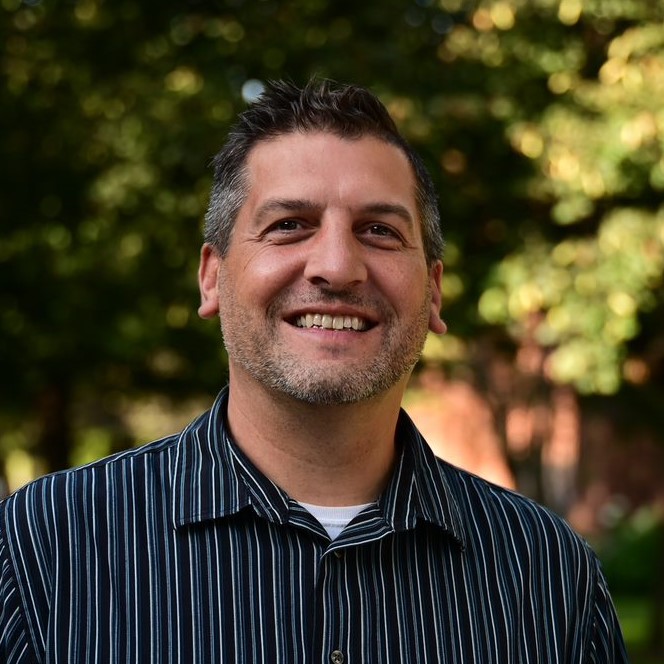 |
My in-laws are Catholic. They ask people in heaven to ask God to help them. They also ask Mary to ask Jesus to help them. What do I say about this?
Say a child wants something from his or her parents. That child’s best chance to get what is requested is by asking the “golden child” older sibling, whose family status is higher, to go to the parents and present that request. The parents may be more inclined to grant the request to the “golden child.” In the same way, people pray to the saints with the idea that the saints are the “golden children” of heaven who can go to Jesus on their behalf. They think that Jesus will more readily grant the request of a saint in heaven.
Why is this a Roman Catholic practice?
Roman Catholics say that they worship God and only venerate or show devotion to the saints. They point to the “golden bowls full of incense, which are the prayers of God’s people” (Revelation 5:8). They reason that if the saints in heaven are offering prayers to God, they must be aware of our prayers. They say it is no different from asking someone on earth to pray for you. However, Scripture indicates that while the saints in heaven may offer up prayers in general, they are not aware of our specific prayers: “You are our Father, though Abraham does not know us or Israel acknowledge us; you, LORD, are our Father, our Redeemer from of old is your name” (Isaiah 63:16).
Sometimes, James 5:16 is used as justification for prayers to the saints: “The prayer of a righteous person is powerful and effective.” Roman Catholics reason that since the saints in heaven are more righteous than anyone on earth, their prayers are more efficacious. This is a misunderstanding of the source of prayer’s power. The power does not come from the righteousness of the one praying or the size of one’s faith, but from the omnipotent object of the prayer. “If you have faith as small as a mustard seed, you can say to this mountain, ‘Move from here to there,’ and it will move. Nothing will be impossible for you” (Matthew 17:20).
What does the Bible have to say?
Prayer is an act of worship. Scripture is filled with beautiful examples: “I will praise you, Lord my God, with all my heart; I will glorify your name forever. For great is your love toward me; you have delivered me from the depths, from the realm of the dead” (Psalm 86:12,13). God bids his children, “Call on me in the day of trouble; I will deliver you, and you will honor me” (Psalm 50:15). Scour the Scriptures. You will never find a single word about asking a saint in heaven for help.
Because God commands us to pray and worship only him, prayers to saints are idolatry. It gives glory to saints, glory that God reserves for himself. “I am the LORD; that is my name! I will not yield my glory to another or my praise to idols” (Isaiah 42:8).
Prayers to saints are an offense to Christ. The Bible says, “There is one God and one mediator between God and mankind, the man Christ Jesus” (1 Timothy 2:5). We have no command to pray to saints, nor do we have a promise that saints in heaven can hear or help. Most important, we already have the perfect mediator, our brother Jesus, who advocates on our behalf. “Let us then approach God’s throne of grace with confidence, so that we may receive mercy and find grace to help us in our time of need” (Hebrews 4:16).
Have a question, ask it here!
Author: David Scharf
Volume 110, Number 7
Issue: July 2023

Honoring the saints
Article 21 of the Augsburg Confession condemns the worship of saints but gives three beautiful ways to honor the saints who have gone before us. First, we want to thank God for them. Second, we can look at their lives to be strengthened in our faith. Third, we honor them as we imitate their faith and other virtues.
Thanksgiving for the saints
The Bible is full of examples of giving thanks to God for the saints on earth and those who have finished their earthly race and gone before us. In most of the apostle Paul’s letters, he thanks God for the believers to whom he writes (Ephesians 1:16; Romans 1:8; 1 Corinthians 1:4; 2 Thessalonians 1:3). It’s fitting to thank God for those through whom you heard the Word of Truth! I am eternally grateful for my grandparents and parents, who trained me in the way of the Lord. I praise God for past teachers, my friends, and my spouse, who taught me what it is to live and forgive like Jesus.
Read Philippians 1:3-6.
List the heroes of faith God has placed in your life and what they have done to encourage you in your faith.
Look to God’s grace in their lives
The devil is good at making us feel alone. I sit in church and hear the pastor proclaim, “God, our heavenly Father, has forgiven all your sins. By the perfect life and innocent death of our Lord Jesus Christ, he has removed your guilt forever.” But the devil whispers in my ear, “But not for you. Maybe for these others here but not for you.” Can saints help when Satan attacks? They can when we consider how God showed his grace in their lives. Who else has questioned God’s forgiveness? Others who have gone before!
King David felt the full weight of his sin: “When I kept silent, my bones wasted away through my groaning all day long. . . . Then I acknowledged my sin to you. . . . And you forgave the guilt of my sin” (Psalm 32:3-5). David, the adulterer? David, the murderer? No, David, the forgiven. His guilt was removed forever, and mine is too.
Search the Scriptures in your mind or with your open Bible. Give examples of God’s grace in the lives of people in the Bible that can help encourage you when you have doubts.
Imitate their faith
The third way to honor the saints is to imitate their faith. Hebrews 13:7 says, “Remember your leaders, who spoke the word of God to you. Consider the outcome of their way of life and imitate their faith.”
Read Hebrews 11.
In the heroes of faith chapter, the Bible holds up these people—even though they were sinners—as examples for us to follow. Pick out a hero of faith and consider a virtue of that person’s faith that you want to emulate in your life.
- Q&A: What would Jesus think about all the different Christian denominations?
- Q&A: Are there times when it is okay to lie?
- Q&A: What advice does the Bible have for single people?
- Q&A: How do I know I am elected by God?
- Q&A: Why is Pontius Pilate immortalized in our creeds?
- Q&A: How does remembering my baptism help with the guilt I carry?
- Q&A: Do parts of the Bible teach works righteousness?
- Q&A: How can I overcome my struggle with lust and pornography?
- Q&A: How should I help my child struggling with same-sex attraction?
- Q&A: Should Christians pray to saints?
- Q&A: Is anger sinful?
- Q&A: How can parents encourage adult children who wander from the faith?
- Q&A: Does the doxology belong in the Lord’s Prayer?
- Q&A: Is God fair?
- Q&A: When we pray, “Your kingdom come,” what are we praying for?
- Q&A: How can I better manage what God has given me this year so that I glorify him?
- Q&A: What are ways to glorify God besides singing in church?
- Q&A: I have no special gifts, and I mess up all the time. Does God really need me?
- Q&A: How do I overcome the feeling that my life has no purpose and I don’t make a difference?
- Q&A: My friend died and was not a professing Christian. What do I say to the family?
- Q&A: How can my mother and I forgive my father for being unfaithful and causing my parents to divorce?
- Q&A: Why were demon possession, gifts of healing, and gifts of tongues more prevalent in biblical times?
- Q&A: Is Christianity the only religion that gives the certainty of heaven?
- Q&A: If people go to hell, isn’t it their fault because God gave them free will and they rejected him?
- Q&A: Why are the 40 days between Jesus’ resurrection and his ascension important for the disciples and for us?
- Q&A: Can you explain Jesus’ words to the wailing women he met on his way to be crucified?
- Q&A: What if spouses don’t “love” each other anymore?
- Q&A: Is it wrong to have a cross with Jesus’ body on it?
- Q&A: Is our time of grace really unchangeable?
- Q&A: I know that we are saved by grace apart from works, but how can it be that easy?
- Q&A: Are there degrees of glory in heaven as a reward for good works?
- Q&A: Do Lutherans take the Bible literally and teach millennialism?
- Q&A: Are there different interpretations of the Bible?
- Q&A: How can we be sure the Bible includes what God originally gave us?
- Q&A: Why does it seem like Christianity is so negative?
- Q&A: How can I explain how Jesus’ resurrection is possible and if the Bible is reliable?
- Q&A: Is it okay to live together if we are planning to get married?
- Q&A: How is the Bible God’s Word?
- Q&A: Were we “created to make a difference”?
- Q&A: Am I being judgmental if I point out someone’s sin?
- Q&A: Do I need to read the Bible to have a relationship with God?
- Q&A: Can a Christian vote for a political candidate who supports abortion?
- Q&A: Does God really care?
- Q&A: Does it really matter how God made the world?
- Q&A: Does God send people to hell?
- Q&A: Is death natural?
- Q&A: How can I forgive and forget?
- Q&A: Does God help those who help themselves?
- Q&A: How can we say that the Old Testament God is the same as the New Testament God?
- Q&A: Is Jesus the only way to get to heaven?
- Q&A: Doesn’t God want me to be happy?
- Light for our path: Does God hate us?
- Light for our path: What kind of comfort can you give someone when a loved one commits suicide?
- Light for our path: What does a submissive wife in a Christian marriage look like?
- Light for our path: Is it a sin to want to die from a terminal illness?
- Light for our path: What advice can you give about applauding in church?
- Light for our path: Can you please explain Matthew 5:20?
- Light for our path: What is karma?
- Light for our path: Can the devil personally be tempting me and a lot of other people at exactly the same time?
- Light for our path: Does the word Easter refer to Ishtar, the Babylonian fertility goddess?
- Light for our path: What role does emotion play in contrition?
- Light for our path: What does the white stone in Revelation 2:17 mean?
- Light for our path: Is the cross symbol now anti-Christian?
- Light for our path: Were Joseph and Mary engaged or married when Joseph learned of Mary’s pregnancy?





